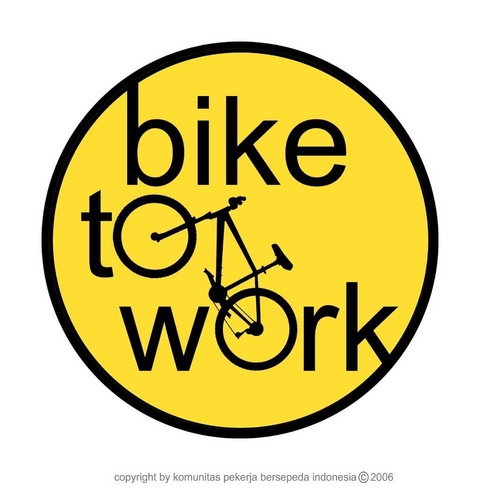France is Paying People to Bike to Work—Could Ann Arbor Do the Same?
by Liz Dwyer
NEXT TIME YOU head to Paris, you might see more people riding bikes across the Seine. That’s because France has just launched a trial experiment that will pay 10,000 people to bicycle to work.
According to Reuters, 20 of the Gallic nation’s companies and organizations have agreed to pay their employees 25 euro cents (about 34 cents in USD) for every kilometer cycled during the commute to and from work.
Only about 2.4 percent of French people bike to work. Increasing that number will improve both the health of the population and reduce smog. After all, if folks are biking, they’re getting some needed exercise, and fewer cars are on the road emitting smog-causing particulates. Air pollution is a growing problem.
In March, Paris was so smoggy that it was tough to see the Eiffel Tower. For a few days the city banned half of the cars from its roads, and scientists found that fine particle emissions were reduced by 6 percent.
While Ann Arbor’s not as smoggy as Paris, Ann Arbor has been singled out by the EPA for its failure to meet federal clean air standards since 2005. Vehicle Miles Traveled (VMT) for the City of Ann Arbor increased by 9.8 percent from 2000 to 2010, from an estimated 481,607,203 miles to 529,238,685, according to data compiled by WATS.Between 2005-2012, Ann Arbor and Washtenaw County have been on the EPA’s list of state areas defined as “nonattainment” with respect to air quality standards tracked and measured by the organization. Washtenaw county’s air pollution has been identified by the EPA as contributing to the poor air and water quality in neighboring Wayne County.
In 2006, 2008 and 2010, the city completely failed to meet national PM-2.5 air quality standards. According to the EPA:
Particulate matter, or PM, is the term for particles found in the air, including dust, dirt, soot, smoke, and liquid droplets. Particles can be suspended in the air for long periods of time. Some particles are large or dark enough to be seen as soot or smoke. Others are so small that individually they can only be detected with an electron microscope.
Many manmade and natural sources emit PM directly or emit other pollutants that react in the atmosphere to form PM. These solid and liquid particles come in a wide range of sizes.
Particles less than 10 micrometers in diameter (PM10) pose a health concern because they can be inhaled into and accumulate in the respiratory system. Particles less than 2.5 micrometers in diameter (PM2.5) are referred to as “fine” particles and are believed to pose the greatest health risks. Because of their small size (approximately 1/30th the average width of a human hair), fine particles can lodge deeply into the lungs.
Washtenaw County has one of the highest rates of childhood asthma in Michigan.
To combat their own hazy conditions, other European nations have offered incentives to get their citizens biking. Sweden has even given some citizens bike coaches to get them used to cycling through bustling cities.
Taking public transportation is already subsidized by the French government—companies get tax breaks for giving their employees bus and subway passes—so adding bikes into the mix isn’t much of a stretch. If the project boosts the number of bicyclists on French roads by 50 percent, the government says it will expand the plan.
City bike-loan schemes have played a large role in boosting bicycle commuting and cities including Barcelona, London and Stockholm have followed the model of the Velib in Paris.
Meanwhile, 2,320 Ann Arbor residents commute to work by bike, according to census data gathered by the National Bike League. In 2000, 1,520 people commuted to work by bike. While it’s an impressive increase, as a percentage of the population, Ann Arbor’s bike commuters represent about 2 percent of the total.
In Fort Collins, Colorado, which is slightly larger than Ann Arbor, there are 7,776 bike commuters, and triple the percentage of residents who commute by bike than in our city. In 2013, Madison, Wisconsin officials began eyeing a program similar to the one implemented in France. In Toronto, Canada employers subsidize workers who bike to the office.
In 1998, Cambridge, MA passed a parking and traffic ordinance requiring employers to make smart commuting subsidies. Workers receive monthly stipends of $100-$125 that they’re allowed to put that toward parking or a T pass; they keep what’s leftover. If they bike or walk, they can keep the entire stipend. Do that year round and it’s a sizable bonus for being healthy: $1,200 to $1,500. Ann Arbor could pass a similar ordinance requiring business owners to pay smart commuting subsidies.

